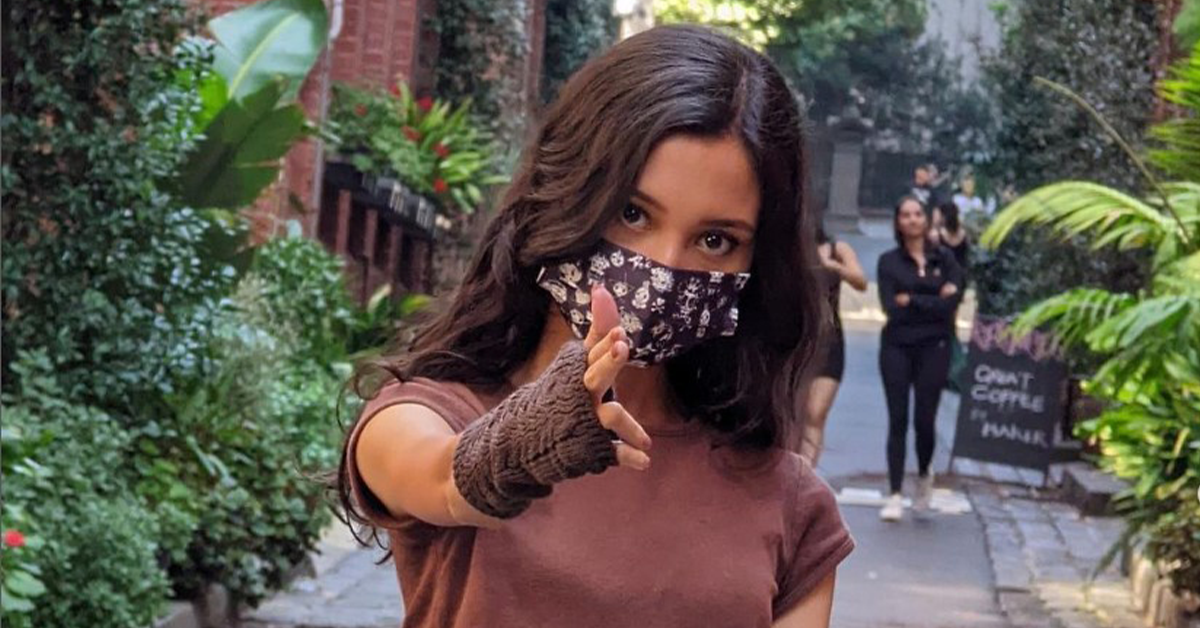Influencers get a bad rap. “Get a real job!” they say.
Ok, some “influencers” are questionable. Influencer fraud happens, and it costs companies millions of dollars.
But the truth is influencers are actually more influential than traditional celebrities with Gen Zs.
Research in our What Gen Z Actually Do Online report found that 32% of Gen Zs have bought something because of an influencer, compared to just 16% who’ve bought something because of a celebrity. The figure is even higher amongst females with 43% having bought something because of an influencer.
“Why?” they say.
Well it’s because there are actually true influencers out there – activists, opinion leaders, comedians even. Yasmin Poole is giving a voice to young people in politics. Flex Mami is helping people to find their own version of success. The boys behind The Inspired Unemployed are reminding people to not take themselves too seriously (but also, R U OK?). And there are a whole lot more of these kinda-known names of influence hovering below the celebrity ceiling.
Why Gen Z follow influencers
Influencers aren’t just your vapid social media wannabes, many are simply good at what they do or what they know about and are therefore influential with it online.
As an 18-year-old male from Victoria acknowledged, “There are some real personalities on social media that help aim young people towards healthy and non-toxic lifestyles that grant them a greater quality of living.”
This was backed up by an 18-year-old male from NSW who said, “I notice a lot of influencers on TikTok that teach content or give advice with the sole intention to provide better information to their followers. This makes them more reliable and trustworthy. I am able to believe in what they say when we are at their best interests.”
Belief and trust as he says are key. Also, relatability.
“They seem more like real people,” a 22-year-old female from South Australia said.
“Sarah’s Day is a great example for this. She is a genuine person and someone with a reputation like that will always have my money.”
It’s this personal connection which gives an influencer their edge.
“When you see someone you know or look up to wearing a certain dress you are more likely to buy that dress than if you had just seen the dress on a random model,” an 18-year-old female from Victoria said.
And according to this 15-year-old from Queensland, influencers are often able to get past Gen Zs own internalised spam filters.
“Young people are quite tech savvy in the current age and as such are hyperaware of marketing tactics which can influence their pull to buy a product,” they said.
“For example, when I am scrolling on TikTok and I watch a video that is very obviously branded it makes me less likely to buy a product. In contrast, if I watch a video of someone recommending a product that is not obviously branded I will be more likely to consider.”
The downside to influencer culture
It’s important to acknowledge some of the negatives of influencers too. What’s echoed by many young people are the unrealistic beauty expectations influencers can bring.
“As a 13 to 15-year-old growing into myself I was very impressionable and became much more aware of my appearance after following other influencers accounts,” an 18-year-old female from NSW said.
Gen Z can also sense fakery. A 19-year-old male from Queensland said, “Many times, the product is terrible or the influencer never used the product themself. One example of this is weight loss tea. Models online don’t use those products and there is no evidence their product works.”
Some disagree they have any influence at all.
“13 and onwards people will stick to either what they like or what is deemed cool through social media and if you think that means influencers have the ability to make a brand cool, then you’re wrong,” a 16-year-old male from Victoria said.
“Things gain popularity through general exposure or even one-hit-wonder influencers who people will see one popular video from and maybe like something they saw, this doesn’t mean that in the future they will look to that influencer for more.”
What to take away from all this
“Influencer” is not a dirty word. But influencers are only going to be as influential as they are a good fit for whatever it is they are marketing. This means it aligns with their identity and their audience which they’ve cultivated through hard work and not a desire to just flog stuff.
When this happens there’s a good chance they’re going to be more useful than a celebrity with Gen Zs.






